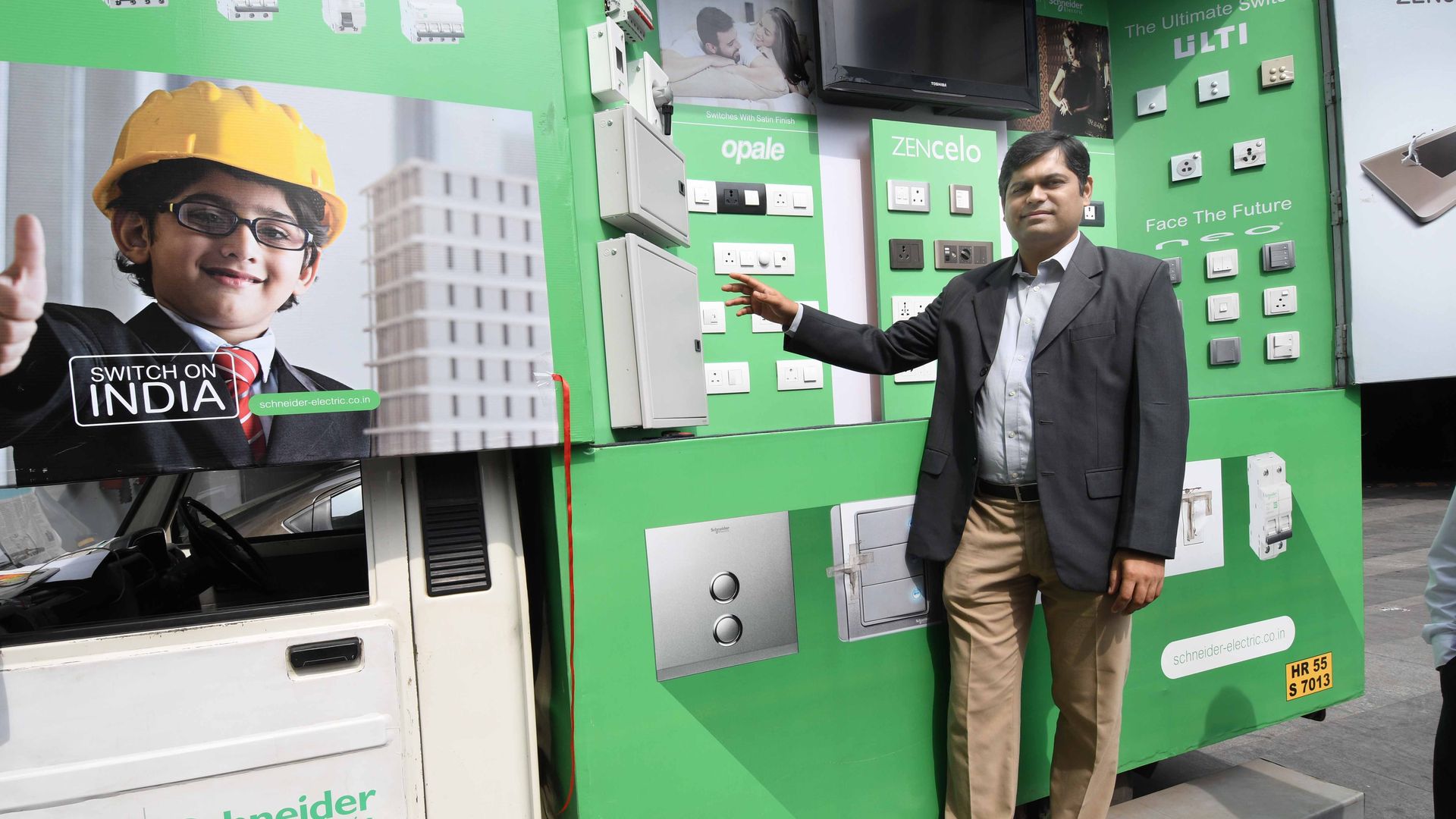Dec 13, 2018 - Energy & Climate
Expert VoicesEnergy firms pursuing new markets in world's unelectrified regions
Add Axios as your preferred source to
see more of our stories on Google.

Regional sales head Ramesh Jha of Schneider Electric India launches "Switch on India" campaign on July 3, 2017, in Kolkata, India. Photo: Debajyoti Chakraborty/NurPhoto via Getty Images
